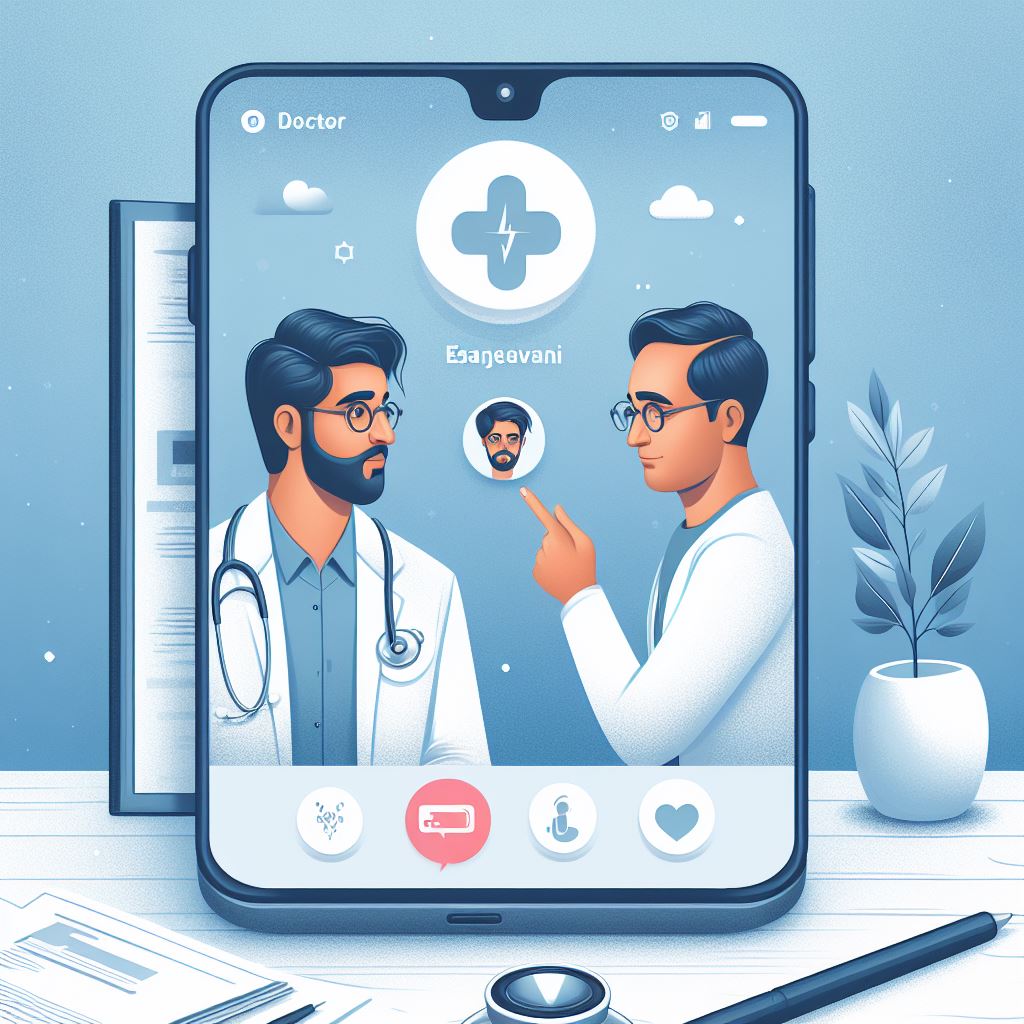
The National Digital Health Mission (NDHM) is a revolutionary initiative to create a unified healthcare platform in India. This article explores its goals, functionalities, and impact on patients, providers, and the overall healthcare landscape.
Introduction
The National Digital Health Mission (NDHM) is a transformative initiative by the Government of India aimed at digitizing healthcare services to ensure efficient, accessible, and affordable healthcare for all citizens. This mission leverages technology to create a unified health ecosystem that connects various stakeholders in the healthcare sector.
The National Digital Health Mission (NDHM) is a transformative program launched by the Government of India in 2020. It aims to create a seamless digital infrastructure for healthcare delivery across the nation. This mission envisions a future where patients have secure access to their medical records, healthcare providers can efficiently collaborate, and the entire system functions with improved transparency and efficiency.
The Need for NDHM

India’s healthcare sector, despite significant advancements, faces challenges like fragmented medical data, limited access to specialists, and a lack of interoperability between different healthcare institutions. NDHM addresses these concerns by establishing a centralized digital platform that connects various stakeholders – patients, doctors, hospitals, pharmacies, and insurance companies.
Core Functionalities of NDHM
The NDHM offers a comprehensive suite of digital tools and services:
- Health ID: A unique identifier assigned to every citizen, enabling secure storage and access to their medical history. [Alt text: A mobile phone screen displaying a Health ID with a QR code]
- Personal Health Records (PHRs): A digital repository for patients to store and manage their medical information, including prescriptions, lab reports, discharge summaries, and allergies.
- Healthcare Professionals Registry (HPR): A central registry listing verified healthcare professionals across the country, ensuring authenticity and streamlining provider discovery.
- Health Facility Registry (HFR): A comprehensive database of healthcare facilities, including hospitals, clinics, and diagnostic centers.
- Telemedicine Platform: Enabling remote consultations between patients and doctors, improving accessibility to healthcare, especially in remote areas.
- Patient Consent Management: Empowering patients to control access to their health data, fostering trust and data privacy.
Benefits of NDHM

The NDHM offers a multitude of benefits for patients, providers, and the healthcare system as a whole:
- Patients:
- Secure and centralized access to medical records
- Improved continuity of care across different healthcare providers
- Easier sharing of medical history during emergencies
- Empowered decision-making through access to health data
- Providers:
- Enhanced efficiency through streamlined record-keeping and information exchange
- Improved patient care coordination and collaboration
- Reduced administrative burden
- Better access to patient medical history for informed treatment decisions
- Healthcare System:
- Improved data-driven decision making for policymakers
- Reduced healthcare costs through better care coordination and prevention
- Enhanced transparency and accountability within the healthcare system
- Increased accessibility of quality healthcare services across the nation
Implementation of NDHM
- Health ID Registration: Citizens can register for a Health ID through the NDHM portal or mobile application.
- Health Facility Empanelment: Healthcare providers and facilities can onboard onto the NDHM platform to provide digital healthcare services.
- Data Security Measures: Stringent data security protocols to safeguard personal health information and ensure privacy.
- Training and Awareness: Training programs for healthcare professionals and awareness campaigns for citizens to promote digital health literacy.
Future Outlook
The NDHM is being implemented in a phased manner, with pilot projects successfully conducted in several regions. The government is actively collaborating with stakeholders like healthcare providers, technology companies, and insurance agencies to ensure smooth integration and widespread adoption. The future of NDHM looks promising, with potential for integration with Artificial Intelligence (AI) for advanced diagnostics and personalized medicine.
National Digital Health Mission Challenges
The National Digital Health Mission faces challenges that include:
- Data Misuse: Keeping citizens’ health and personal data safe to protect their privacy from unauthorized use.
- Data Leaks: Ensuring strong technology and security measures to prevent any accidental release of sensitive information.
- Profiteering: Preventing misuse of data for financial gains at the expense of citizens’ well-being.
- Foreign Surveillance: Avoiding the risk of foreign entities accessing citizens’ health data without consent.
These challenges highlight the need for robust security measures to safeguard individuals’ data and maintain the mission’s integrity
FAQs
Who is eligible for a Health ID?
Every citizen of India is eligible for a Health ID.
Is it mandatory to register for NDHM?
No, registration for NDHM is currently voluntary.
How can I access my Health ID?
You can obtain your Health ID by registering on the official NDHM portal or through designated healthcare facilities.
How does NDHM ensure data security?
The NDHM platform adheres to stringent data privacy regulations, with robust security measures to protect sensitive health information.
Conclusion
The National Digital Health Mission is a remarkable initiative with the potential to revolutionize healthcare delivery in India. By enabling secure, efficient, and patient-centric data management, NDHM paves the way for a more accessible, accountable, and future-proof healthcare system for all.The National Digital Health Mission is a significant step towards transforming the healthcare landscape in India. By embracing digital technologies and interoperable systems, NDHM aims to enhance healthcare accessibility, quality, and affordability for all citizens. This initiative has the potential to revolutionize healthcare delivery and improve health outcomes across the country. Embracing the NDHM is not just a step towards modernization but a leap towards a healthier and digitally empowered India.
Read More: eSanjeevani: India’s National Telemedicine Service
